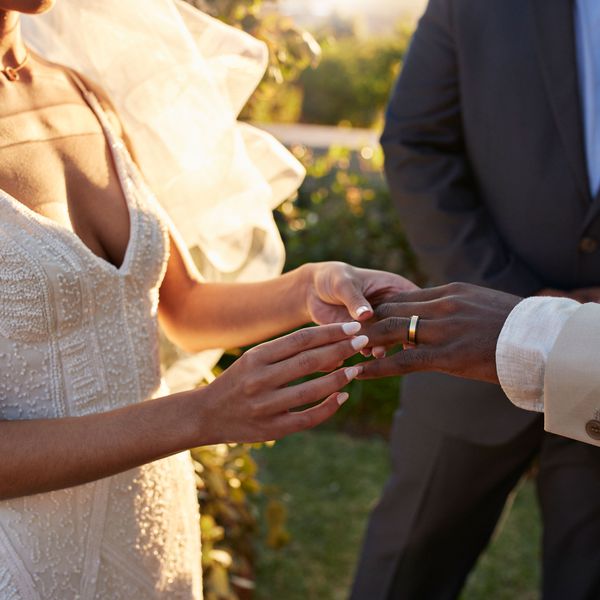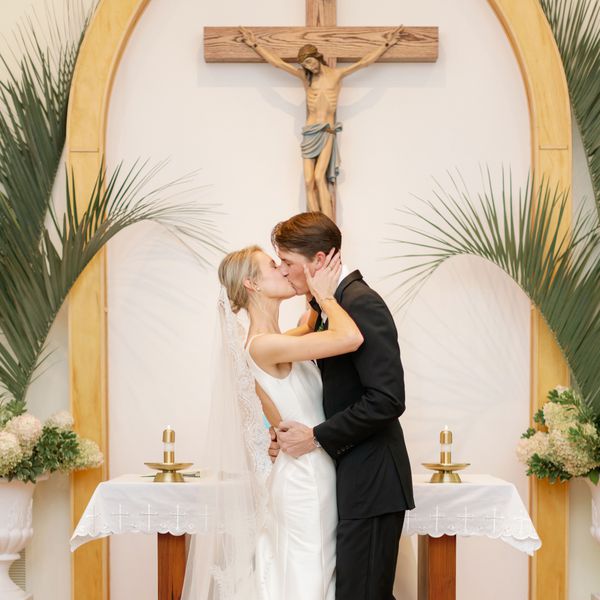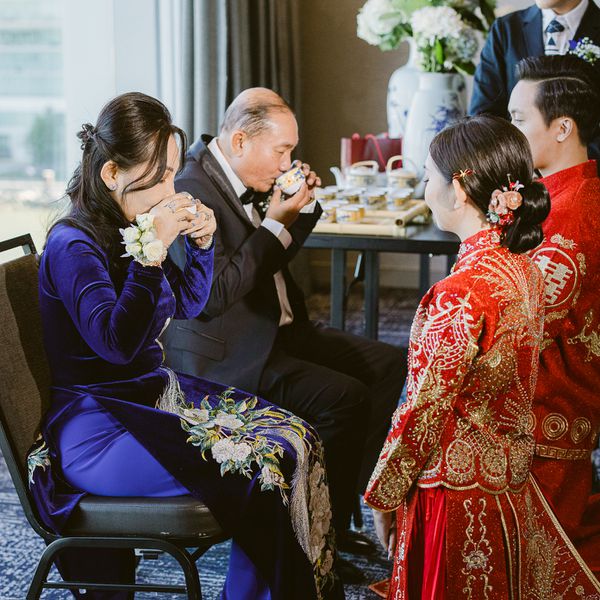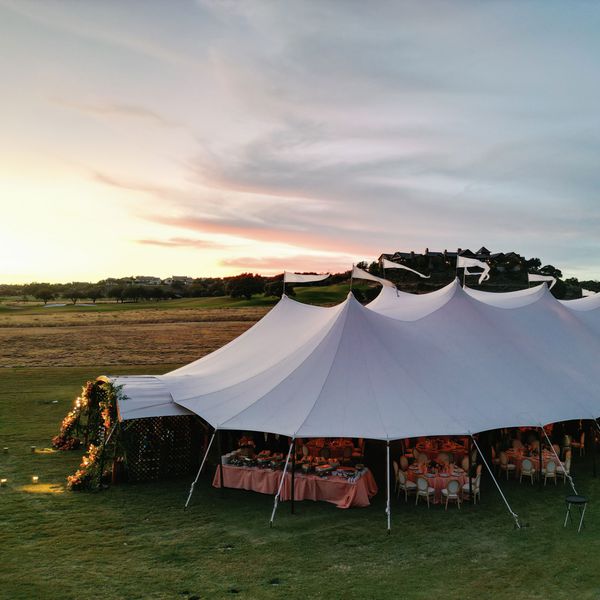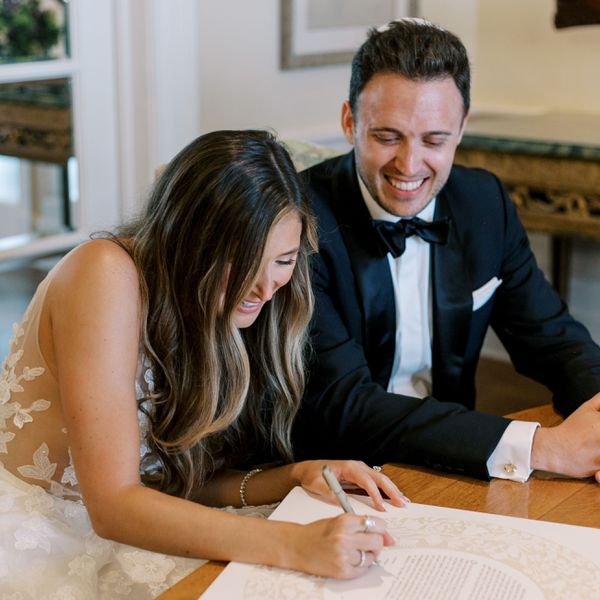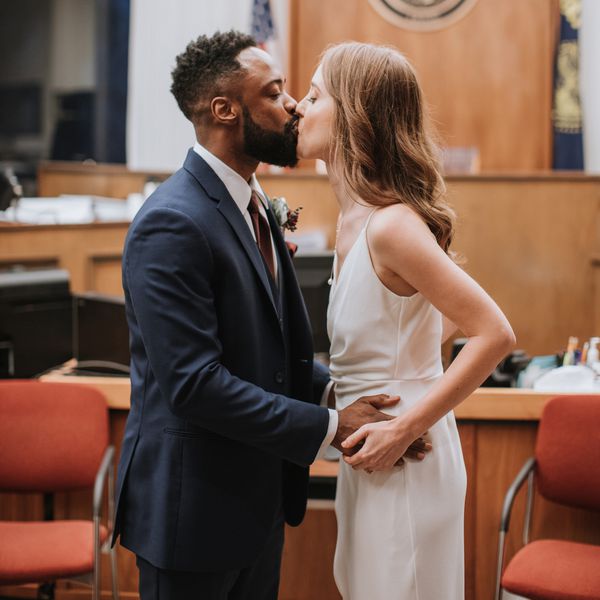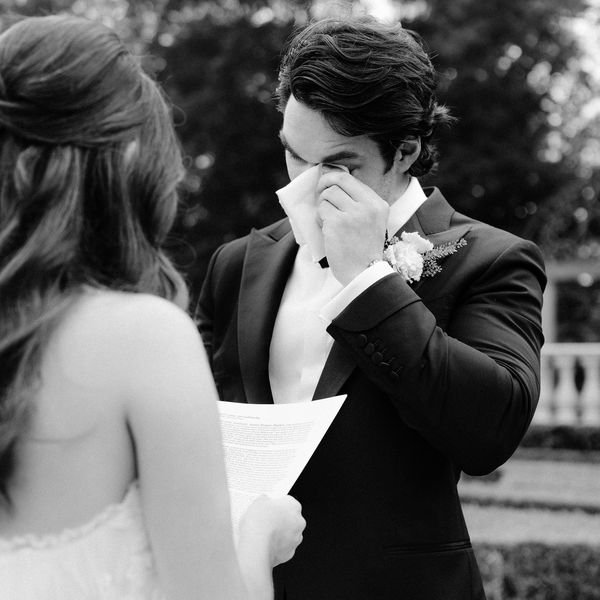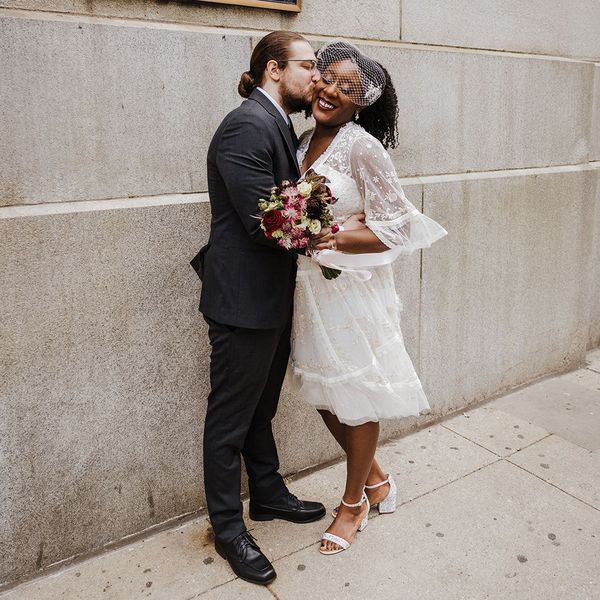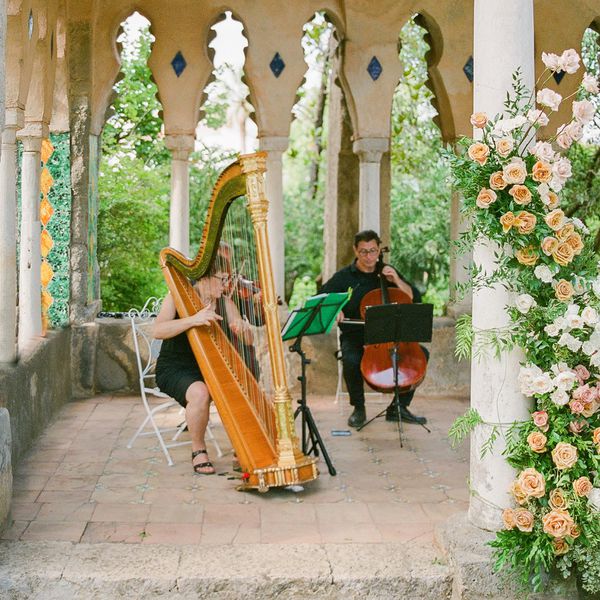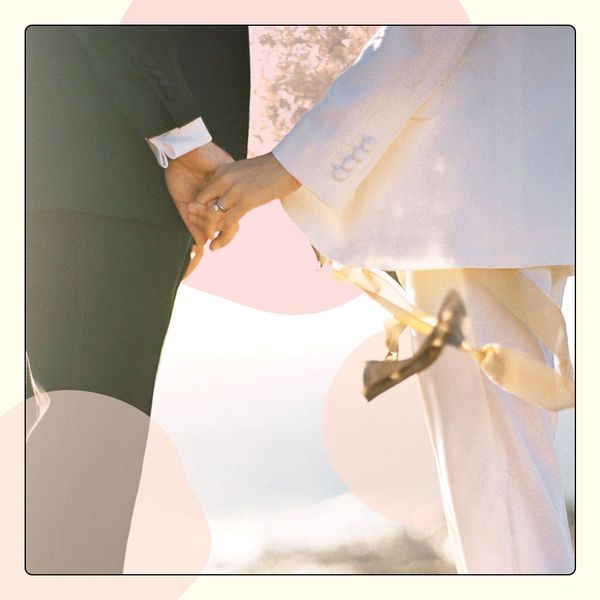
LumiNola / Getty Images
Every relationship is different, and what works for one couple may not work for another. The same can be said for marriage: Though many couples choose to get married as a way to show their devotion, some prefer to skip the formalities in favor of alternative unions. One prime example? Commitment ceremonies.
Historically, couples who couldn't legally get married by the church or the state because of their sexual orientation or race opted for a commitment ceremony. But today, many partners still use commitment ceremonies to bind themselves to one another without going through the legal steps that marriage requires. It's a way for you and your partner to publically declare your everlasting love—and dedicate your lives to each other—without having to sign any legal documents.
Meet the Expert
Kim Hefner is a Colorado-based wedding expert and photographer who specializes in elopements, micro weddings, and commitment ceremonies. She is also the owner of Wild and Found Photography.
Does this type of union sound appealing to you? If you're unsure how to execute a commitment ceremony, we reached out to wedding expert and photographer Kim Hefner for insight into this practice. Here, she talks us through the history of commitment ceremonies and how to organize a celebration that's unique to your love story. Read on for everything you need to know.
What Is a Commitment Ceremony?
A commitment ceremony is very similar to a wedding ceremony except for one nuance: It is not legally binding. During this ritual, two people declare their love for one another and vow to spend the rest of their lives together. Sometimes the ceremony includes traditions from weddings; other times couples get completely creative with their ceremony and just speak directly to one another with no frills.
The History of Commitment Ceremonies
Commitment ceremonies have long been used as an alternative to marriage. "We know that these types of ceremonies and informal unions have been happening for hundreds, if not thousands, of years due to same-sex couples being forbidden to marry by many religions or just being frowned upon by certain cultures in history," Hefner says. "There are recorded examples throughout history of same-sex unions, which were recognized by their communities but not through formal religious or legal means."
Today, since many countries around the world have yet to legalize same-sex marriages, these ceremonies still serve as a way for individuals to take back their power and declare their love and admiration for their partner. They are also a popular option amongst modern-day couples who simply don't want to legally get married. "Another big reason that couples have commitment ceremonies is that the legal part of getting married interferes with what they want to do on the day they commit their lives to each other," Hefner adds. Not to mention, some couples don't want to be legally bound together for financial and tax purposes, and opt for commitment ceremonies as a way to bypass this.
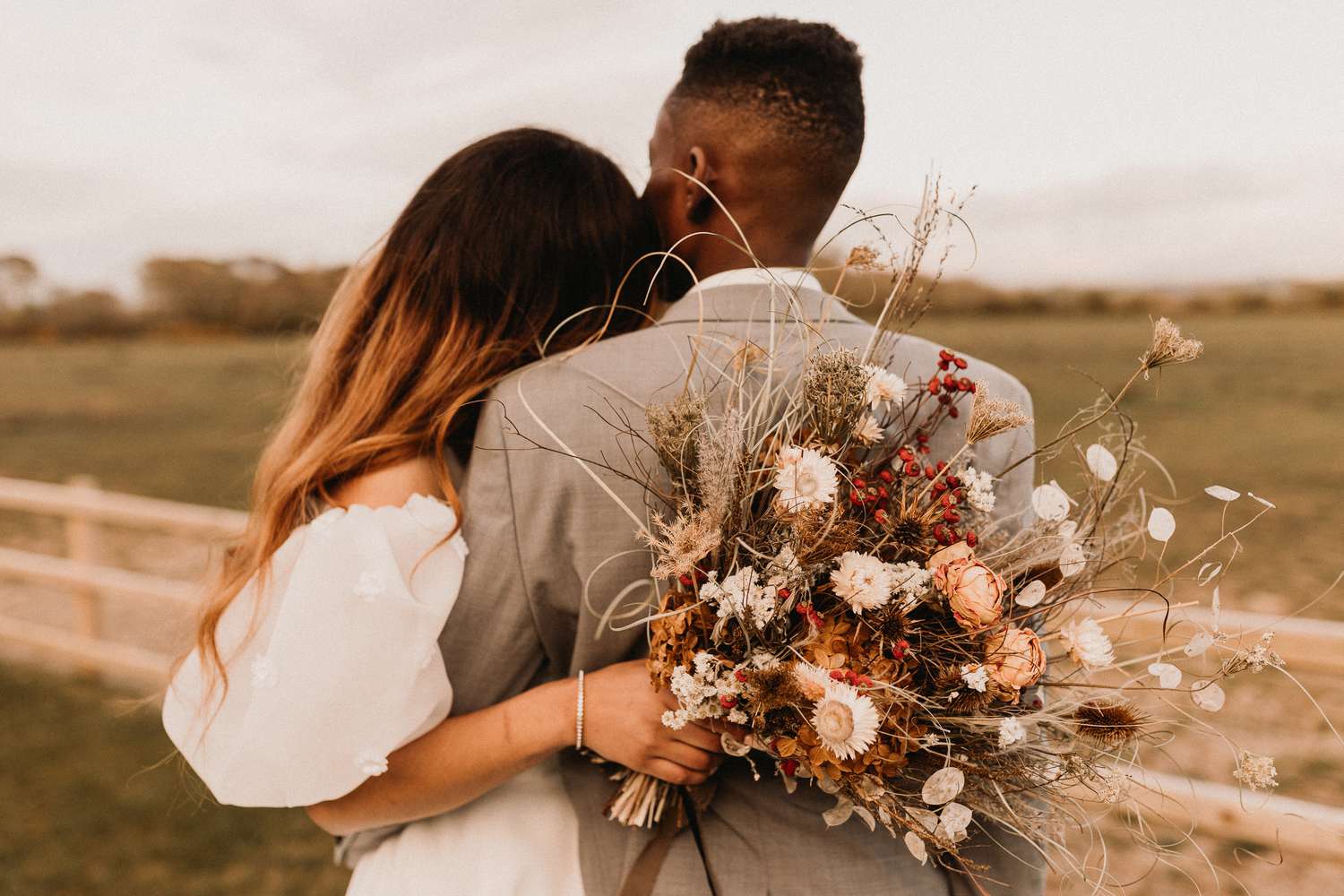
Getty Images
The Pros and Cons of a Commitment Ceremony
If you're unsure whether or not you'd like to have a commitment ceremony, here are a few pros and cons to consider to help you make your decision.
The Pros
The one major positive of commitment ceremonies is that there are no rules associated with this type of event—and you aren't restricted to who, what, when, where, and how you have your celebration. Plus, while some states and countries require marriages to happen in sanctioned venues (in the United Kingdom, for example, weddings must take place somewhere public) commitment ceremonies aren't governed by any of these regulations. That means you can have your event wherever you want.
Additionally, any couple who wants to have a commitment ceremony can have one regardless of their sexual orientation, religion, nationality, race, etc. Even those who are legally able to get married can decide to have a commitment ceremony instead. Again, there aren't any restrictions holding you back from celebrating your love your way.
The Cons
"The major downside of a commitment ceremony is that if you do not or cannot eventually make your marriage legally binding, you may miss out on some of the legal benefits of being married," explains Hefner. "This might include tax benefits or being able to get on a partner’s health insurance."
She adds: "Another downside is that in some cultures, family or friends may not approve of going a non-traditional route." Still, it's important to do what is best for you and your partner, and if that's a commitment ceremony then go for it!
How to Plan a Commitment Ceremony
Have you decided that a commitment ceremony is the right choice for you and your partner? Here, find out how to organize a celebration that's just as unique as your relationship.
Choose a location that's personal to you and your partner.
Though you aren't planning a wedding, you still want to choose a location or venue that's personal to you. After all, the whole point of a commitment ceremony is to do things your way, so opting for a locale that holds a special place in your and your partner's heart is the best way to "exchange vows."
According to Hefner, dream big when choosing your location. "My advice to couples that are just starting to plan their commitment ceremony is to have a brainstorming date night or a few!" she offers. "Take turns asking each other questions like, 'If we could have our ceremony [anywhere] in the world, where would that be? What would the scenery look like?'" From there, reach out to your desired spot to see if they're available on that date you and your partner would like to commit yourselves to each other.
Create your ideal ceremony program.
Since there are no legal requirements for a commitment ceremony, your ceremony program can include whatever components you want. Hefner says many couples include wedding traditions like exchanging vows and rings or walking down the aisles, while others choose to go on adventures and completely create their own traditions. "Perhaps a big adventure in a new breathtaking location sounds like the perfect day," she says. "Or maybe a quiet celebration with close friends in a cabin in the woods just feels right to them." There can even be a big reception afterward with a wedding cake, a first dance, speeches, and music.
Not sure where to begin when putting together your program? Hefner suggests couples ask themselves questions like: "If we described our perfect day together, what would that look like? Where would we go, and what would we do?" Another good one is: "Are there any activities that are special in our relationship that we want to include as a part of our commitment day? Or new activities we want to try?" Let those answers determine what your commitment ceremony will look like.
Put together an invite list—or skip one altogether.
Here's some good news: You and your partner can invite as many, or as little, guests as you want to your commitment ceremony. You don't even need to have a witness or an officiant if you don't want one. "If you don’t want certain people to be there or if you don’t want to do a certain wedding tradition, then you shouldn’t feel pressured to do it," Hefner shares. "Make this day about you two."
Keep in mind that your guest list might restrict the activities you do during your commitment ceremony. If you want grandma to be there, for example, a strenuous hike to the top of a mountain to say vows might not be the best choice.
Select an outfit that reflects your personal style.
What you wear to your commitment ceremony is totally up to you and your partner. Many couples sport looks that resemble wedding attire with tuxedos and elaborate wedding dresses. Other people decide to commit to one another wearing colorful and unexpected ensembles. "When you throw the (legal) rulebook out the window, the possibilities are endless!" says Hefner.

